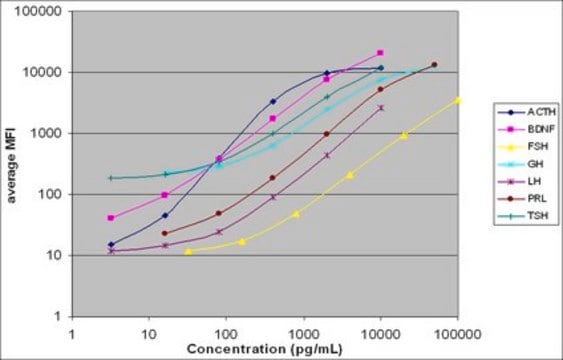48-655MAG
MILLIPLEX® Protein Translation Magnetic Bead 6-Plex Kit - Cell Signaling Multiplex Assay
About This Item
Recommended Products
species reactivity
human, rat, mouse
Quality Level
manufacturer/tradename
Milliplex®
technique(s)
multiplexing: suitable
detection method
fluorometric (Luminex® xMAP®)
storage temp.
2-8°C
General description
Specificity
Application
Packaging
Legal Information
Disclaimer
Signal Word
Danger
Hazard Statements
Precautionary Statements
Hazard Classifications
Acute Tox. 4 Oral - Aquatic Acute 1 - Aquatic Chronic 2 - Eye Dam. 1 - Skin Irrit. 2
Storage Class Code
10 - Combustible liquids
Certificates of Analysis (COA)
Search for Certificates of Analysis (COA) by entering the products Lot/Batch Number. Lot and Batch Numbers can be found on a product’s label following the words ‘Lot’ or ‘Batch’.
Already Own This Product?
Find documentation for the products that you have recently purchased in the Document Library.
Related Content
Multiplex assays simplify cancer research by measuring multiple biomarkers simultaneously for various signaling pathways.
Multiplex assays simplify cancer research by measuring multiple biomarkers simultaneously for various signaling pathways.
Multiplex assays simplify cancer research by measuring multiple biomarkers simultaneously for various signaling pathways.
Multiplex assays simplify cancer research by measuring multiple biomarkers simultaneously for various signaling pathways.
Our team of scientists has experience in all areas of research including Life Science, Material Science, Chemical Synthesis, Chromatography, Analytical and many others.
Contact Technical Service




